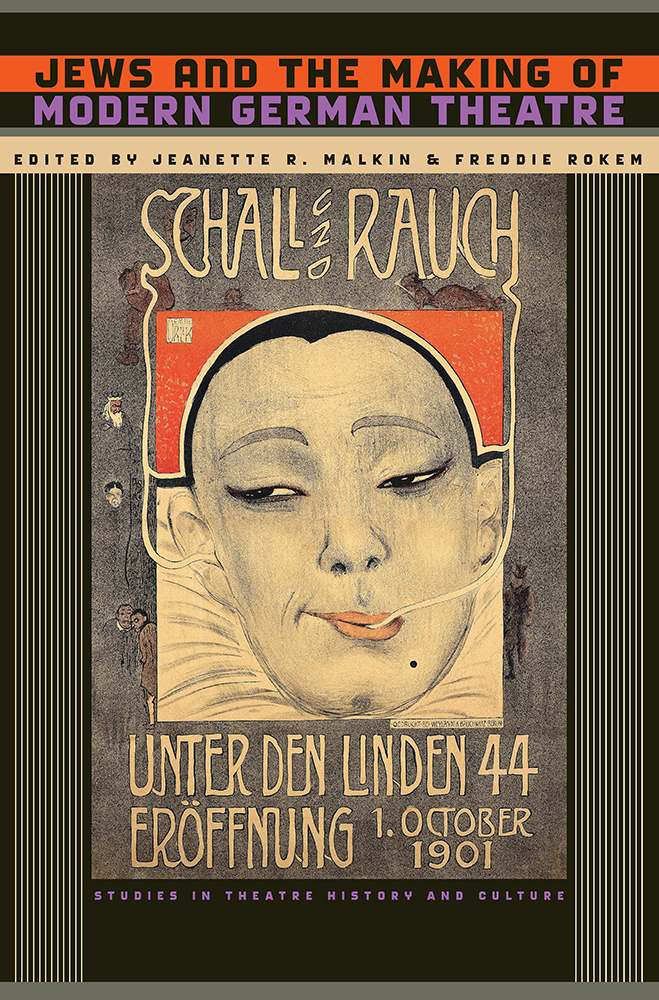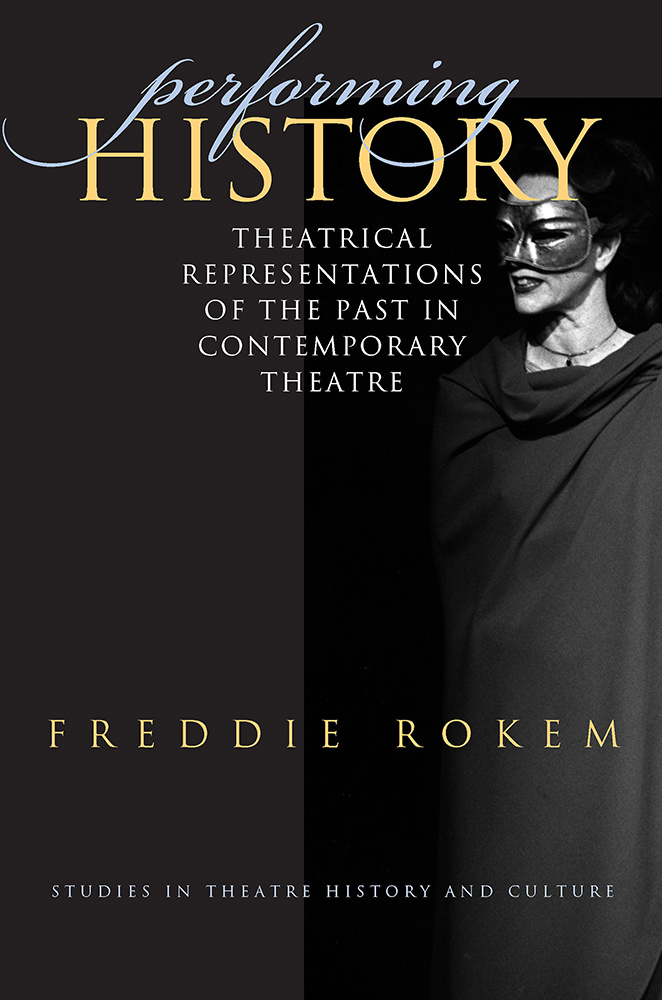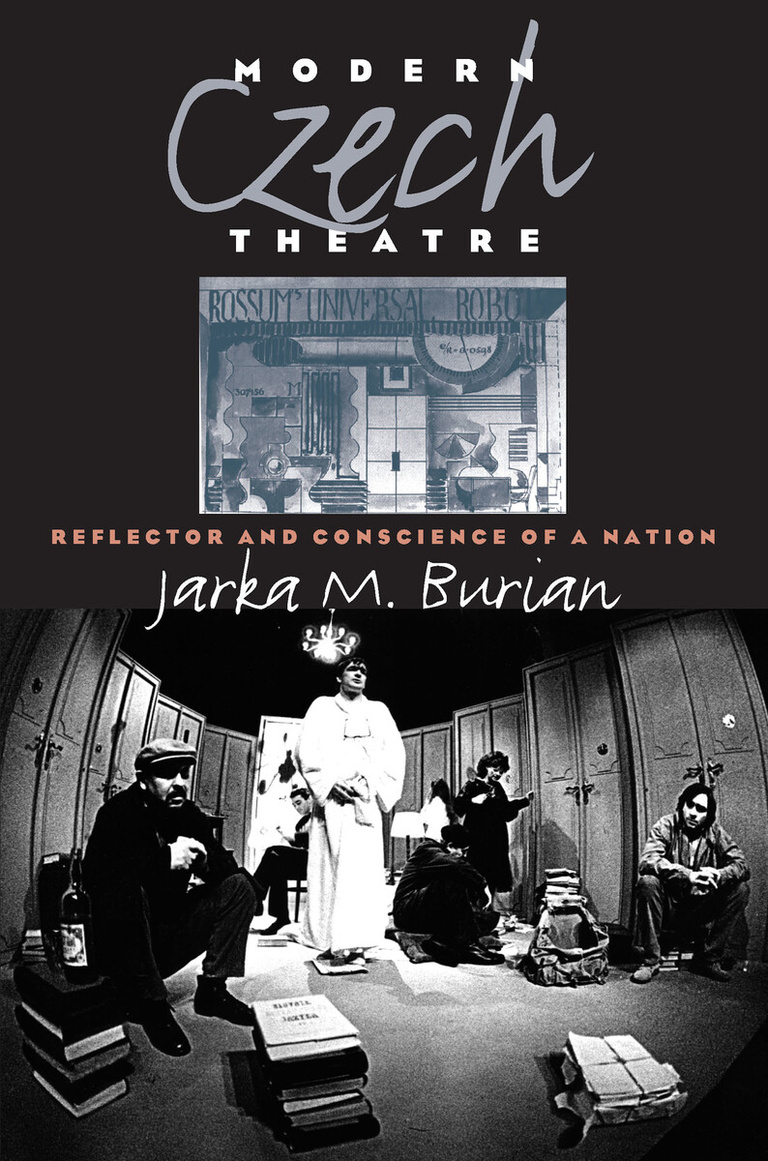While it is common knowledge that Jews were prominent in literature, music, cinema, and science in pre-1933 Germany, the fascinating story of Jewish cocreation of modern German theatre is less often discussed. Yet for a brief time, during the Second Reich and the Weimar Republic, Jewish artists and intellectuals moved away from a segregated Jewish theatre to work within canonic German theatre and performance venues, claiming the right to be part of the very fabric of German culture. Their involvement, especially in the theatre capital of Berlin, was of a major magnitude both numerically and in terms of power and influence. The essays in this stimulating collection etch onto the conventional view of modern German theatre the history and conflicts of its Jewish participants in the last third of the nineteenth and first third of the twentieth centuries and illuminate the influence of Jewish ethnicity in the creation of the modernist German theatre.
The nontraditional forms and themes known as modernism date roughly from German unification in 1871 to the end of the Weimar Republic in 1933. This is also the period when Jews acquired full legal and trade equality, which enabled their ownership and directorship of theatre and performance venues. The extraordinary artistic innovations that Germans and Jews co-created during the relatively short period of this era of creativity reached across the old assumptions, traditions, and prejudices that had separated people as the modern arts sought to reformulate human relations from the foundations to the pinnacles of society.
The essayists, writing from a variety of perspectives, carve out historical overviews of the role of theatre in the constitution of Jewish identity in Germany, the position of Jewish theatre artists in the cultural vortex of imperial Berlin, the role played by theatre in German Jewish cultural education, and the impact of Yiddish theatre on German and Austrian Jews and on German theatre. They view German Jewish theatre activity through Jewish philosophical and critical perspectives and examine two important genres within which Jewish artists were particularly prominent: the Cabaret and Expressionist theatre. Finally, they provide close-ups of the Jewish artists Alexander Granach, Shimon Finkel, Max Reinhardt, and Leopold Jessner. By probing the interplay between “Jewish” and “German” cultural and cognitive identities based in the field of theatre and performance and querying the effect of theatre on Jewish self-understanding, they add to the richness of intercultural understanding as well as to the complex history of theatre and performance in Germany.
“Jeanette Malkin and Freddie Rokem bring together a detailed and fascinating set of essays that document and analyze the role of German Jews as co-creators of modern and avant-garde culture in the periods of the Second Reich and the Weimar Republic. Combining methodologies from theatre history and cultural studies, the essays collectively reveal the creative contribution of Jewish theatre artists such as Otto Brahm, Max Reinhardt, and Leopold Jessner and detail their newly emerging experiments as they intersect with Jewish culture and education. Malkin and Rokem’s excellent introduction and epilogue foreground questions about Jewish cultural identity formation with a present-time focus on how we remember and honor the creativity of that era. An important and engrossing collection!”—Janelle Reinelt, University of Warwick
“This commendable collection of essays illuminates a hitherto surprisingly neglected subject, the role of Jews in the late nineteenth- and early twentieth-century theatre, especially their role in the major experimental movements within that theatre. This collection demonstrates that far from representing a marginal or separatist theatrical tradition, German Jewish theatre artists were at the heart of German theatre activity and innovation during this important period and were responsible in large measure for much of its most distinctive work. An excellent and informative study.”—Marvin Carlson, author, Theatre Is More Beautiful Than War: German Stage Directing in the Late Twentieth Century
Preface and Acknowledgments ix
1 Introduction | Break a Leg! | 1
Jeannette R. Malkin
2 Reflections on Theatricality, Identity, and the Modern Jewish
Experience | 21
Steven E . Aschheim
3 How “Jewish” Was Theatre in Imperial Berlin? | 39
Peter Jelavich
4 Stagestruck | Jewish Attitudes to the Theatre in Wilhelmine
Germany | 59
Anat Feinberg
5 Yiddish Theatre and Its Impact on the German and Austrian
Stage | 77
Delphine Bechtel
6 German and Jewish “Theatromania” | Theodor Lessing’s
Theater-Seele between Goethe and Kafka | 99
Bernhard Greiner
7 Arnold Zweig and the Critics | Reconsidering the Jewish
“Contribution” to German Theatre | 116
Peter W. Marx
8 Jewish Cabaret Artists before 1933 | 132
Hans - Peter Bayerdorfer
9 Transforming in Public | Jewish Actors on the German
Expressionist Stage | 151
Jeannette R. Malkin
10 The Shaping of the Ostjude | Alexander Granach and Shimon
Finkel in Berlin | 174
Shelly Zer-Zion
11 Max Reinhardt between Yiddish Theatre and the Salzburg
Festival | 197
Lisa Silverman
12 Theatre as Festive Play | Max Reinhardt’s Productions
of The Merchant of Venice | 219
Erika Fischer- Lichte
13 The Unknown Leopold Jessner | German Theatre and
Jewish Identity | 232
Anat Feinberg
14 Epilogue | 261
Freddie Rokem
Works Cited | 269
Contributors | 291
Index | 295



